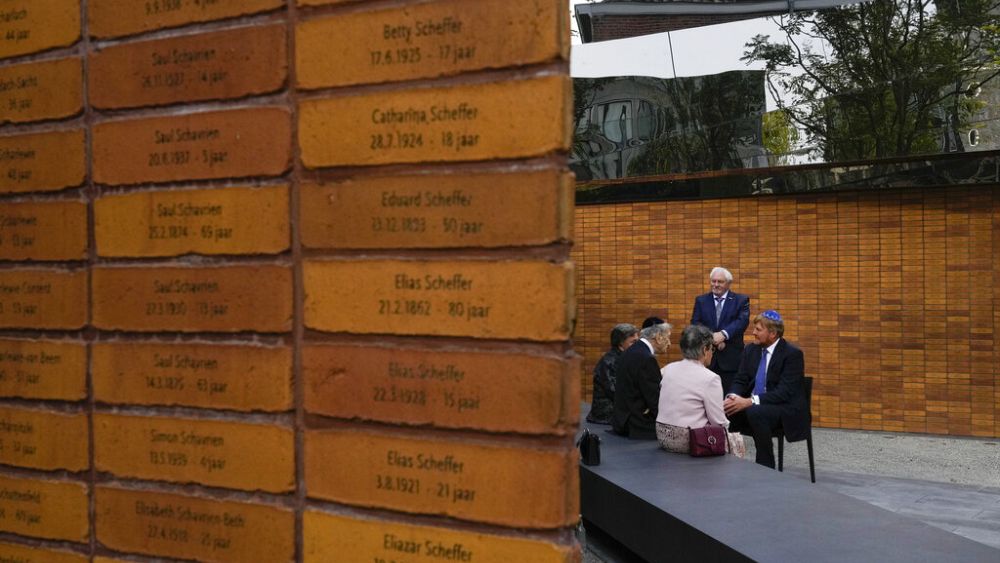
A new memorial honouring the more than 102,000 Dutch victims of the Holocaust was unveiled on Sunday by King Willem-Alexander.
Designed by Polish-Jewish architect Daniel Libeskind, the Memorial of Names stands in the city’s Jewish Quarter. It presents every victim’s name, date of birth and age when they died inscribed on a brick in one of several walls.
The walls themselves are shaped to form four Hebrew letters, spelling out a word that translates as “In Memory Of.”
Before the Holocaust there were around 140,000 Jews living in the Netherlands. By the war’s end, more than two thirds of the country’s Jewish population had been murdered by the Nazis.
Jacques Grishaver, chairman of the Dutch Auschwitz Committee, officially opened the monument on Sunday with the king, in the presence of dignitaries and Holocaust survivors.
After walking through the gates, each picked up a white stone and placed it in front of a commemorative wall: a Jewish tradition when visiting graves.
‘Evil does not have the last word’
Dutch caretaker Prime Minister Mark Rutte said the monument should also make people confront the question of whether the Netherlands did enough to protect Jews during the war.
He called the era “a black page in the history of our country”, adding that the monument also had an important contemporary message “in our time, when antisemitism is never far away. The monument says — no, it screams — be vigilant.”
The memorial near a former concert hall where Jews were held before being sent to concentration camps while Amsterdam was under German occupation.
It was paid for in part by crowdfunding: 84,000 people paid 50 euros each to sponsor one of the bricks.
The official unveiling came a year after a friend of Anne Frank, Jacqueline van Maarsen, laid the first stone, which bears the name of 20-year-old Dina Frankenhuis, murdered in Sobibor.
Rutte said the monument carries a vital message. “This monument says 102,163 times: ‘No, we will not forget you. No, we won’t accept that your name is erased. No, evil does not have the last word. Every one of them was somebody and today they get back their names.”